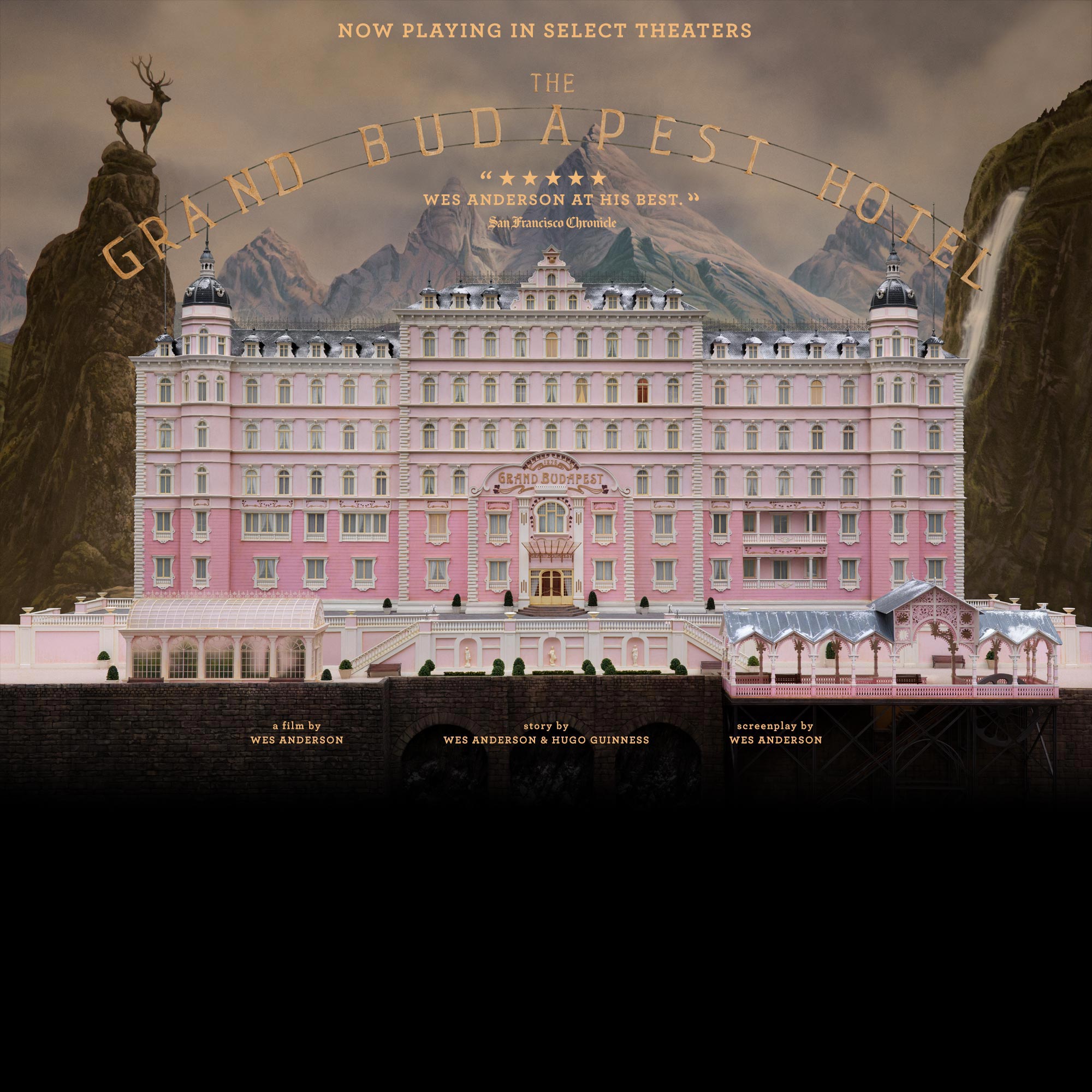Wes Anderson’s eighth feature, The Grand Budapest Hotel, follows on from the youthful Moonrise Kingdom to explore the history of an Eastern European hotel that lies within the fictional nation of Zubrowka.
Our own personal concierge is named The Author (played by Tom Wilkinson in the 80s and Jude Law in the 60s), an ode to Stefan Zweig, who leads us on an energetic escapade of aristocratic murder set in the middle of a civil war, A Boy with Apple and infinite towers of pastries. Framed intriguingly by a pondering student in a Cold-War torn square. She discovers the Author’s chapter on the country’s famous hotel; the story then travels back to the account of his visit there in the 60s which then warrants a further flashback to where the bulk of the film is set and remains.
Romantic M.Gustave H is played effortlessly by Ralph Fiennes who is a complete revelation, why he hasn’t featured in a Wes Anderson production before is as baffling as the mystery within the film. Gustave finds an unlikely friend in Zero Moustafa (Tony Revolori in the 30s and F. Murray Abraham in the 60s) who seems to be the true protagonist of the plot under the guidance and training of the sophisticated and L’Air De Panache scented concierge. Saoirse Ronan plays Zero’s love interest Agatha, which at first seems to provide the only true emotional arc in the film but is then extinguished promptly without much sense of irony.
Here we see Anderson at his most functional and formal and for the most part that seems to be the point. Much like the well-oiled establishment of the Grand Budapest Hotel, it trickles along and follows the typical standards of the technical side of Anderson. Horizontal tracks and whip pans existing within symmetrical frames and passages (DoP Robert Yeoman is often sorely overlooked as Anderson takes the credit for the visual style in his films). Immaculate presentation of props and settings breathe every bit as the caricatured characters do in Andersonville.
Whilst full of rich texture and scenography, what lacks from Grand Budapest Hotel are those emotional and almost at times transcendental experiences that crop up in each of Anderson’s films: Ritchie in the bathroom in The Royal Tenenbaums, the confrontation with the Jaguar Shark in The Life Aquatic with Steve Zissou, the funeral in Darjeeling Limited or indeed the appearance of Mr Wolf in Fantastic Mr Fox. Such instances, on the other hand, seem almost irrelevant here; this is a period murder mystery romp and allows almost no time for introspective reflection amongst the whimsical Marxist (Brothers) inflections.
Bill Murray, Mathieu Amalric, Adrien Brody, Willem Dafoe, Jeff Goldblum, Harvey Keitel, Edward Norton, Jason Schwartzman, and Tilda Swinton are amongst the bloated ensemble and nearly all of The Anderson troupe appear here at selectively sensible moments. The Society of the Crossed Keys sequence seems to serve this entirely for a couple of nice nods to frequent cameos.
Perhaps the most charming aspect (forgive the pun) of our stay in The Grand Budapest is its changing screen ratios. We drift from 1.33 to 2.35 and 1.85:1, each establishing the temporality of the film, furthermore establishing the perfectionist nature of the cineaste in Anderson. More delights come from Alexandre Desplat’s ode to Russian folk music and Anton Karas work for The Third Man. Glimpses of early Renoir, Lubitsch and elements of Chaplin’s Great Dictator and Duck Soup have already been mentioned in the press for this film but Anderson still retains his individual ‘handwriting’ as he likes to call it.
On the surface all the boxes are ticked here: the signature style, the overwhelming cast and the quirky charm. Fans of Anderson will no doubt adore it and newcomers will surely be endeared. A Masterpiece? Probably. At the very least it is a master work by a director who could not show any more assurance of form, style and cinematic language. But perhaps as with some of the greatest masterpieces, rarely are they instantly recognised as such. Time may do to the film what it does to the Hotel; it may become slightly irrelevant in the future but it will almost certainly continue to be treasured by fans and provide a sense of wonder and nostalgia.

